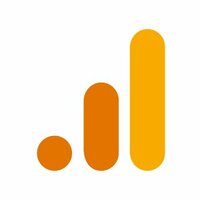Need advice about which tool to choose?Ask the StackShare community!
Mixpanel vs Tableau: What are the differences?
Introduction
In this article, we will examine the key differences between Mixpanel and Tableau, two popular data analytics tools used for data visualization and analysis. Below are six key differences between the two platforms:
Data Aggregation and Analysis: Mixpanel is primarily designed for event-based analytics, focusing on user behavior tracking and analysis. It provides powerful tools for event segmentation, funnel analysis, retention analysis, and A/B testing. On the other hand, Tableau is a comprehensive data visualization tool that can connect to various data sources and allows users to create interactive dashboards, reports, and visualizations. It offers a broader set of data analysis capabilities, including data blending, forecasting, and spatial analysis.
Ease of Use: Mixpanel offers a user-friendly interface and requires minimal coding skills to get started. It provides a drag-and-drop interface for creating custom reports and visualizations. Tableau, on the other hand, has a steeper learning curve and requires a deeper understanding of data structures and calculations. However, Tableau offers a wide range of options for customization and advanced analytics, making it a more powerful tool for experienced analysts.
Data Sources and Integration: Mixpanel focuses mainly on web and mobile app data sources, providing easy integration with popular frameworks and platforms. It offers native SDKs for mobile platforms and JavaScript libraries for web applications. Tableau, on the other hand, is platform-agnostic and can connect to various data sources, including databases, spreadsheets, cloud services, and even web scraping. It provides extensive options for data connectivity and integration.
Real-time Analytics: Mixpanel specializes in real-time analytics, providing up-to-the-minute insights on user behavior and events. It offers real-time event tracking and segmentation, making it ideal for monitoring user activity and analyzing the impact of changes on key metrics. Tableau, on the other hand, provides near-real-time analytics but is more focused on analyzing historical data. It may require a data refresh or periodic data updates to reflect the latest information.
Collaboration and Sharing: Tableau offers robust collaboration features, allowing multiple users to work on a shared project, create dashboards, and collaborate on data analysis. It provides secure sharing options, including embedding visualizations in websites or sharing them via links or email. Mixpanel, on the other hand, does not offer extensive collaboration features, and its sharing options are more limited. It provides options for sharing reports and data through email or exporting them as CSV files.
Cost and Pricing Model: Mixpanel offers a freemium pricing model, with a free plan for limited usage and paid plans based on data volume and additional features. Tableau, on the other hand, follows a subscription-based model with various pricing tiers based on user roles and deployment options. Tableau can be more expensive for larger organizations or those requiring advanced analytics features, whereas Mixpanel may be more cost-effective for small to medium-sized businesses with specific event-based analytics needs.
In Summary, Mixpanel and Tableau differ in their primary focus, ease of use, data sources, real-time analytics capabilities, collaboration features, and pricing models. Depending on the specific requirements and use cases, one may be more suitable than the other for a particular organization or project.
Very easy-to-use UI. Good way to make data available inside the company for analysis.
Has some built-in visualizations and can be easily integrated with other JS visualization libraries such as D3.
Can be embedded into product to provide reporting functions.
Support team are helpful.
The only complain I have is lack of API support. Hard to track changes as codes and automate report deployment.
Power BI is really easy to start with. If you have just several Excel sheets or CSV files, or you build your first automated pipeline, it is actually quite intuitive to build your first reports.
And as we have kept growing, all the additional features and tools were just there within the Azure platform and/or Office 365.
Since we started building Mews, we have already passed several milestones in becoming start up, later also a scale up company and now getting ready to grow even further, and during all these phases Power BI was just the right tool for us.
Pros of Mixpanel
- Great visualization ui144
- Easy integration108
- Great funnel funcionality78
- Free58
- A wide range of tools22
- Powerful Graph Search15
- Responsive Customer Support11
- Nice reporting2
Pros of Tableau
- Capable of visualising billions of rows6
- Intuitive and easy to learn1
- Responsive1
Sign up to add or upvote prosMake informed product decisions
Cons of Mixpanel
- Messaging (notification, email) features are weak2
- Paid plans can get expensive2
- Limited dashboard capabilities1
Cons of Tableau
- Very expensive for small companies2









































